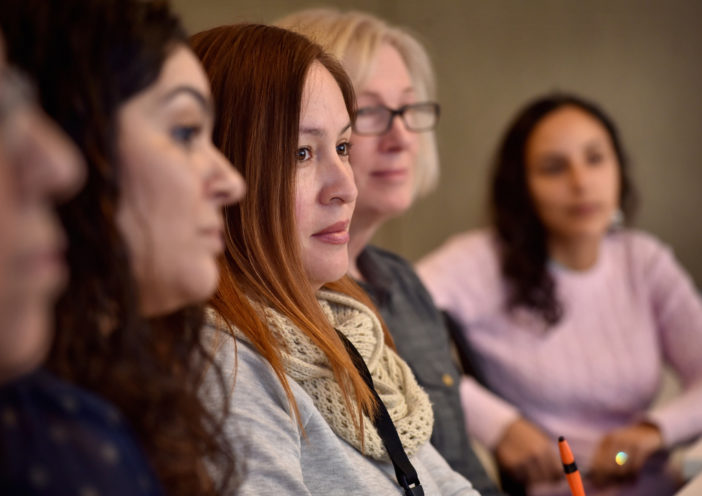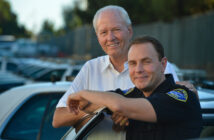Westminster PD hosted a roundtable Feb. 20 to help support information sharing and dialogue between the various groups in the community providing services to victims of violent crime.
“We want to clear the landscape for agencies to work together, especially in a time with limited resources,” said Commander Cameron Knauerhaze, who coordinated the event in partnership with victims advocacy group Crime Survivors, Inc. and Wayfinders, a nonprofit crisis support group. “Crime does not seem to be getting any better.”

Westminster PD Cmdr. Cameron Knauerhaze talks about the importance of empathic listening.
Photo by Steven Georges/Behind the Badge OC
Victims’ advocates and service providers, including groups like Bikers Against Child Abuse and members of the California Department of Corrections Victims Services unit, gathered along with WPD crimes against persons detectives, members of the command staff, and Chief Ralph Ornelas to learn about tools and services available for victims of crimes, as well as new legislation affecting them.
“If it wasn’t for law enforcement, I don’t think I would be [as]strong as I am today,” said Patricia Wenskunas, founder and CEO of Crime Survivors.
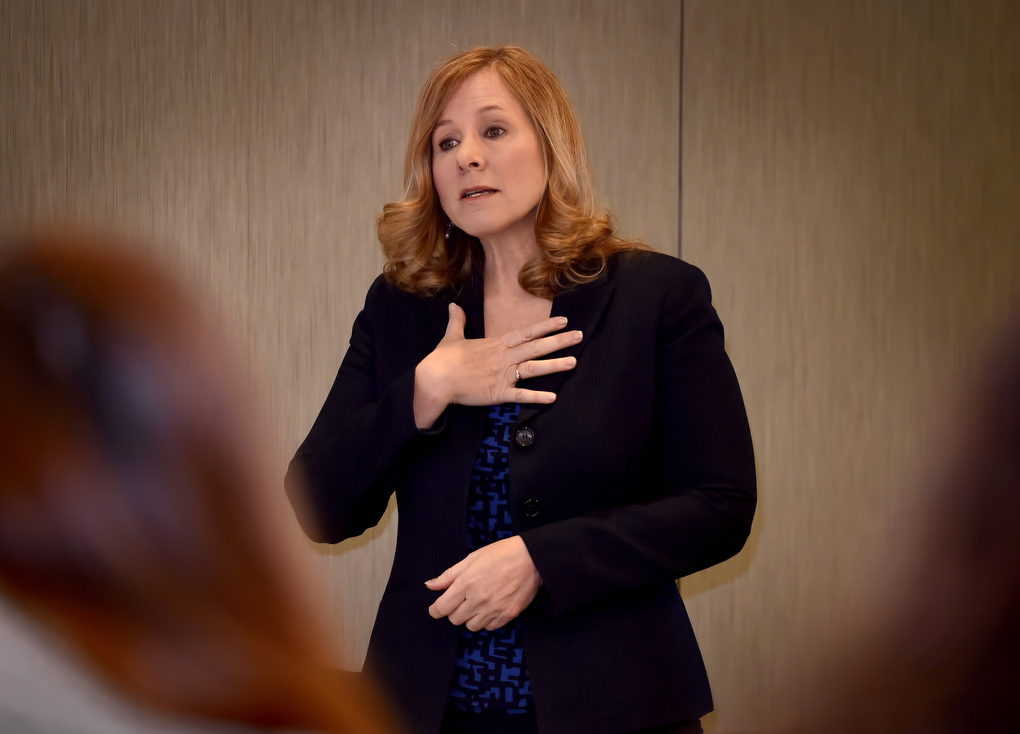
Patricia Wenskunas, CEO/Founder of Crime Survivors, Inc., hosts the event.
Photo by Steven Georges/Behind the Badge OC
Wenskunas, who is a violent crime survivor, said the empathetic demeanor the officer on her own case demonstrated to her at the hospital made a huge impact. She learned about the importance of simply listening.
“Stop and listen and pay attention,” she said.
Knauerhaze expanded on this idea with his presentation on empathic listening – essentially listening with the intent of understanding how the speaker feels. The listener must put aside any biases as much as possible.
“You have a tough job with some of the victims that come to you,” Knauerhaze said to the audience of service providers.
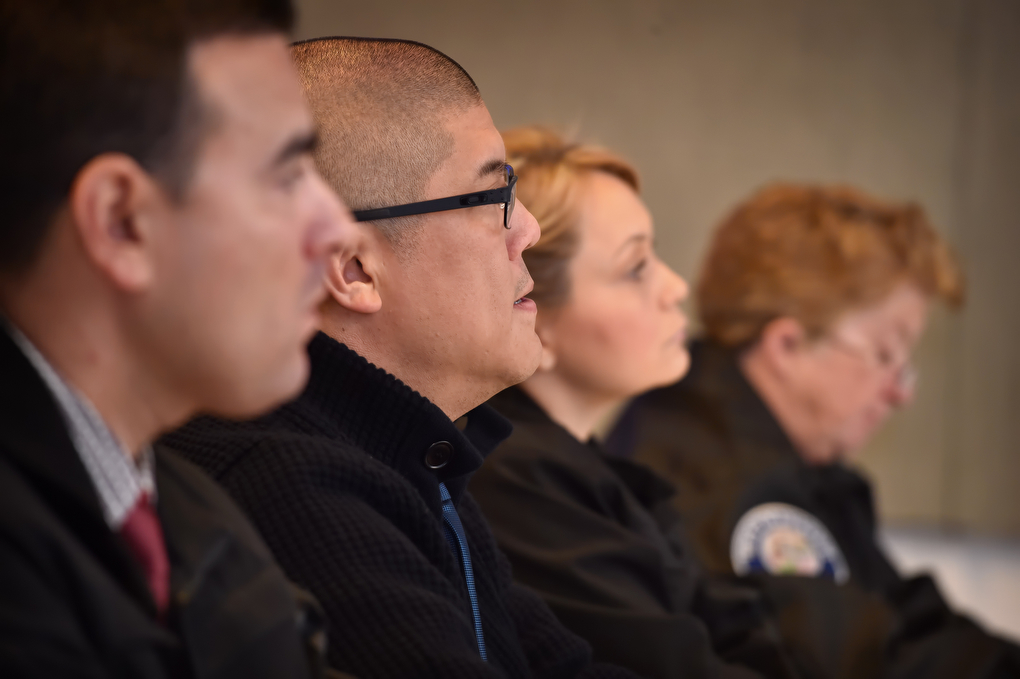
Westminster PD Sgt. Alan Iwashita, second from left, joins others attending an OC Crime Victims Service Providers Roundtable seminar.
Photo by Steven Georges/Behind the Badge OC
It also may require going against nature for many – such as those participating in the roundtable – who are generally problem-solvers in the community.
“Sometimes you got to sit back and just listen,” he told the group. “They don’t want a solution. They just want to be heard.”
Mike Young, victim services manager for the California Department of Corrections and Rehabilitation, presented information about new laws in the prison system, mostly related to parole board hearings for inmates. Because of prison overcrowding in the state, federal mandates have added parole board hearings for some inmates, which could allow for earlier release, according to Young.
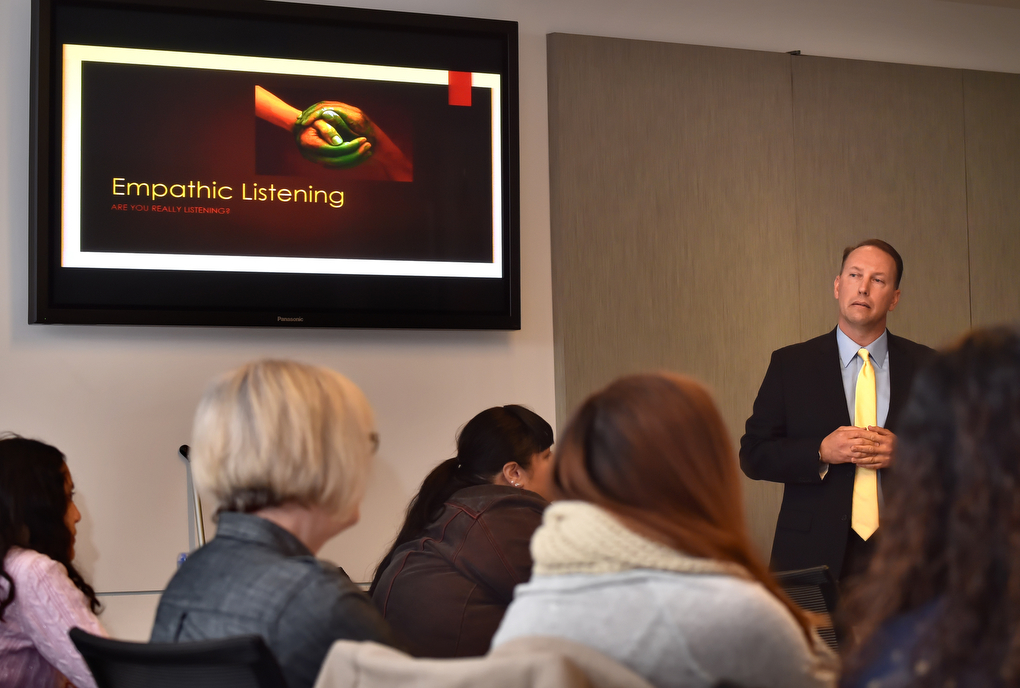
Cmdr. Cameron Knauerhaze talks about the importance of empathic listening.
Photo by Steven Georges/Behind the Badge OC
For example, elderly inmates who are 60 years and over and have served at least 25 years of their sentence are now eligible for parole.
“This is gonna affect guys who’ve had really, really long sentences,” Young said.
Such changes in the law are important for victims services groups to know about because victims of crimes are notified about parole hearings concerning those who perpetrated those crimes.
“Think about what that’s doing to all those victims,” Wenskunas said.
Wenskunas stressed the importance of keeping an open, healthy line of communication with law enforcement.
“If you keep those lines of communication open … you can call them and you can talk to them about situations that maybe didn’t go the best,” she said.
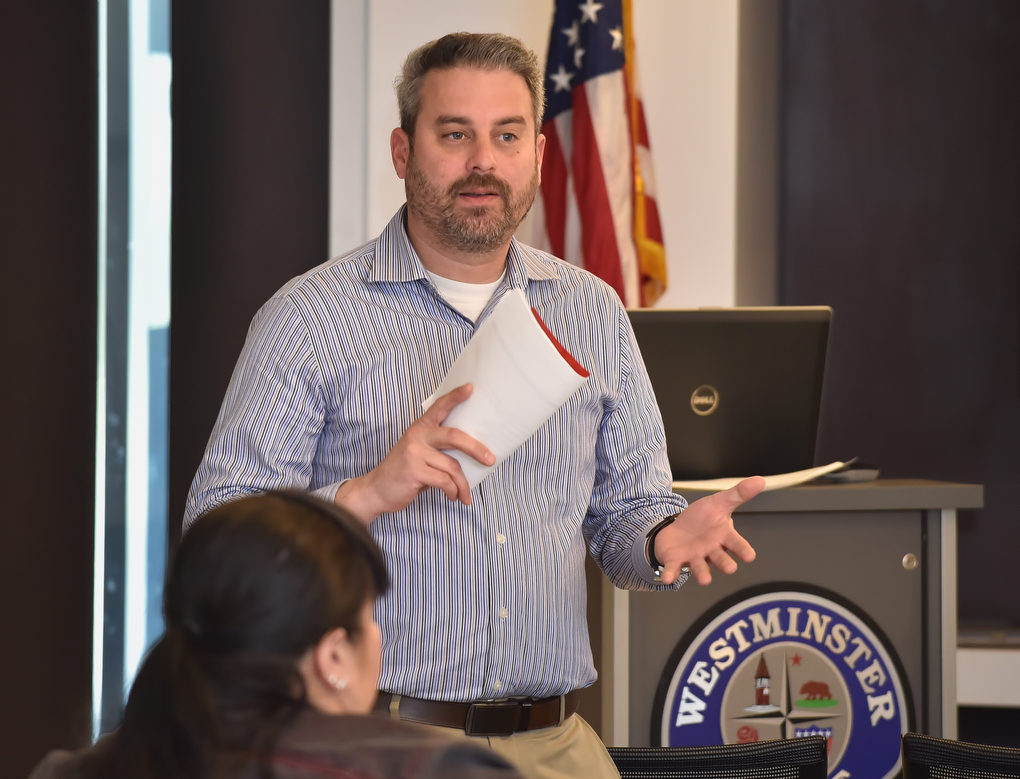
Mike Young of the California Department of Corrections and Rehabilitation speaks at the roundtable.
Photo by Steven Georges/Behind the Badge OC
She added that it is just as important to acknowledge when things go right.
“We kind of need to focus on both sides of those,” she said.
In addition to discussing resources available to victims with the service providers, Wenskunas reminded them about taking care of themselves considering the emotional nature of their jobs. She told them she has a jacks and ball set on her desk that she plays with after difficult calls.
“Take time for that as well,” she said.
The work of the service providers does not go unnoticed by the WPD.
“You guys are the warriors,” Knauerhaze said. “You guys are the ones that are the vanguards of justice.”
 Behind the Badge
Behind the Badge
